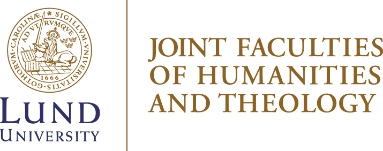Course
Course code:
ACES53
Swedish title:
Asienstudier: Global och regional politik i Asien
Credits:
7.5
Study period:
autumn semester
2018
Type of studies:
full time,
day
Study period:
2018-09-03 – 2018-10-02
Language of instruction:
English
Application code:
LU-19991
Eligibility:
The student must be admitted to the Master of Science (120 credits) programme in Asian Studies.
To take the course as a freestanding course, the student must have a Bachelor's degree in social sciences, humanities, economics or law and at least 30 credits in Asian studies or equivalent.
English 6/English course B.
Description
This is a specialisation course in Asian Studies focusing on the international relations of the region. It starts with the main theories of international relations and then continues with a short historical overview focusing mainly on the post-war period. Subsequently, the course deals with the following most important regional questions: great power rivalry, identity and historical memory, territorial disputes and nontraditional security issues, such as public diplomacy, "soft power" and environmental and food safety. The course is based on the student's active participation, and the students develop their ability to critically evaluate and analyse theories and use empirical examples from the region.
Included parts
- Individual Take-Home Exam, 3.5 credits
- Individual Seminar Paper, 2 credits
- Oral Presentations and Active Participation in Seminars, 2 credits
Note!
This course is not open as a freestanding course next semester. It can be open for application within a programme or for students in an exchange programme. Please ask your academic advisor for information.
How to apply
Lund University uses a national application system run by University Admissions in Sweden. It is only possible to apply during the application periods: October–January for autumn semester and June–August for spring semester.
Extended application deadline
Sometimes the application deadline is extended for a specific programme or course. In these cases you will find the message "open for late application" by the programme/course information on universityadmissions.se. You apply with the usual application steps. As long as this message is showing, it is possible to apply, but late applications are processed in order of date, so it is still important to apply as soon as possible. Please note that if the programme/course does not have an extended deadline, it is not possible to apply late.
First or Second Admission Round?
All international students are encouraged to apply to the First admission round. This round takes place many months before the start of a semester and gives students the time they need to pay their tuition fees, apply for and receive their residence permit (if required), find housing, etc.
The Second admission round is an alternative for students from EU/EEA countries as they do not need a residence permit. Non-EU/EEA students will most likely not have enough time to obtain their permit before the start of the semester. However, even EU/EEA students are advised to apply during the First admission round, as some programmes can be applied for only in the January round. Also, this provides applicants with an admission decision much earlier, which is helpful in making decisions about their studies.
Tuition Fees
Non-EU/EEA citizens
Citizens of a country outside of the European Union (EU), the European Economic Area (EEA) and Switzerland are required to pay tuition fees. You pay one instalment of the tuition fee in advance of each semester.
Read more about tuition fees, payments and exemptions
EU/EEA citizens and Switzerland
There are no tuition fees for citizens of the European Union (EU), the European Economic Area (EEA) and Switzerland.
Application fee
If you are required to pay tuition fees, you are generally also required to pay an application fee of SEK 900 (approximately EUR 100) when you apply at universityadmissions.se. You pay one application fee regardless of how many programmes or courses you apply to.
Read more about paying the University Admissions in Sweden application fee and exemptions
